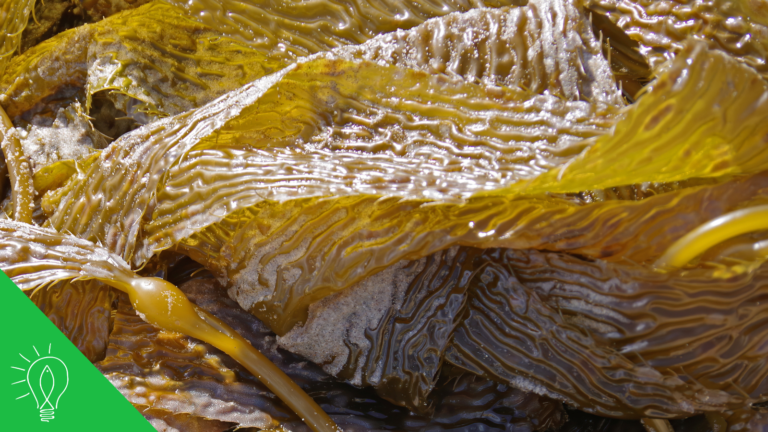

KelpCrofting will address current challenges in kelp farming by developing low-energy and low-cost methods for processing harvests, to open new market opportunities to kelp farmers.
£257,156
15 months

Kelp farmers face major supply-chain bottlenecks associated with the short harvest season and an urgent need to stabilise large tonnages of kelp after harvest. Seaweed is typically dried to <10% moisture content, allowing it to be stored for several years. However, drying is expensive, energy intensive and slow, and is a major barrier to expansion of the kelp farming.
As part of the SIF R&D project, KelpCrofters developed methods to rapidly stabilise wet kelp after harvest via ensiling and fermentation, so that the seaweed can be processed later in the year. This reduced seasonal bottlenecks and resulted in the development of new products for biostimulant, cosmetic and animal feed markets. Dewatering methods were also used to reduce the water content of kelp before drying, resulting in 50% energy savings and reduction in CO2 emissions. The process of ensiling and fermentation were found to reduce the heavy metal and iodine content of kelp, while increasing its digestibility (to monogastric animals). The ferment and silage liquids also had enhanced polyphenol content, increased antioxidant capacity, and were rich in minerals with biostimulant properties; controlled crop trials with the liquid extracts resulted in significant increases in spring barley, which is a crop of huge commercial importance in the UK.
In addition, KelpCrofters developed an innovative seaweed harvesting pontoon that can double the daily harvest capacity of small-medium scale kelp farmers. All these outputs will help scale the seaweed farming industry and open much needed market opportunities to allow sustainable growth of the industry.
KelpCrofters Ltd